
The Legislative Assembly for the Australian Capital Territory is the unicameral legislature of the Australian Capital Territory (ACT). It sits in the Legislative Assembly Building on Civic Square, close to the centre of the city of Canberra.
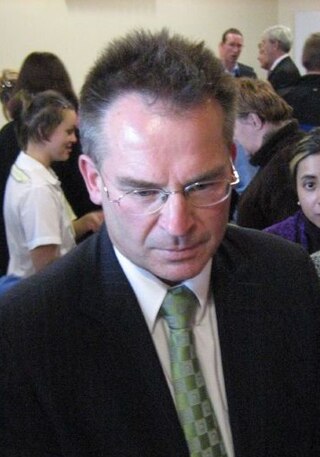
Elections to the Australian Capital Territory Legislative Assembly were held on Saturday, 20 October 2001. The incumbent Liberal Party, led by Gary Humphries, was challenged by the Labor Party, led by Jon Stanhope. Candidates were elected to fill three multi-member electorates using a single transferable vote method, known as the Hare-Clark system. The result was another hung parliament. However Labor, with the largest representation in the 17-member unicameral Assembly, formed Government with the support of the ACT Greens and Democrats. Stanhope was elected Chief Minister at the first sitting of the fifth Assembly on 12 November 2001. The election was conducted by the ACT Electoral Commission and was the first time in Australia's history that an electronic voting and counting system was used for some, but not all, polling places.

Elections to the Australian Capital Territory Legislative Assembly were held on Saturday, 16 October 2004. The incumbent Labor Party, led by Jon Stanhope, was challenged by the Liberal Party, led by Brendan Smyth. Candidates were elected to fill three multi-member electorates using a single transferable vote method, known as the Hare-Clark system. The result was a clear majority of nine seats in the 17-member unicameral Assembly for Labor. It marked the first and so far only time in the history of ACT self-government that one party was able to win a majority in its own right. Stanhope was elected Chief Minister at the first sitting of the sixth Assembly on 4 November 2004. The election was conducted by the ACT Electoral Commission and was the second time in Australia's history that an electronic voting and counting system was used for some, but not all, polling places, expanding on the initial trial of the system at the 2001 ACT election.
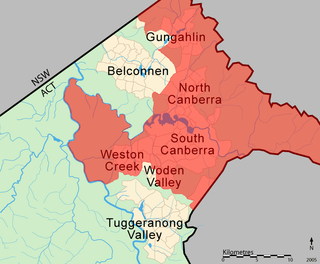
The Molonglo electorate was one of the three electorates for the unicameral 17-member Australian Capital Territory Legislative Assembly between 1995 and 2016. It had seven seats, and was the largest of the three electorates in terms of population.

The Ginninderra electorate is one of the five electorates for the unicameral 25-member Australian Capital Territory Legislative Assembly. It elects five members.

Elections to the Australian Capital Territory Legislative Assembly were held on Saturday, 18 October 2008. The incumbent Labor Party, led by Jon Stanhope, was challenged by the Liberal Party, led by Zed Seselja. Candidates were elected to fill three multi-member electorates using a single transferable vote method, known as the Hare-Clark system. The result was another hung parliament with Labor winning seven seats, the Liberals six seats and the Greens finishing with four seats, giving the Greens the balance of power in the 17-member unicameral Assembly. On 31 October 2008, after almost two weeks of deliberations, the Greens chose to support a Labor minority government. Consequently, Labor was re-elected to a third consecutive term of government in the ACT. Stanhope was elected Chief Minister at the first sitting of the seventh Assembly on 5 November 2008. The election was conducted by the ACT Electoral Commission.
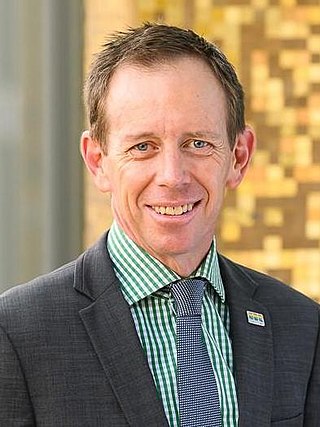
Shane Stephen Rattenbury, is the Attorney-General of the ACT and former Speaker of the ACT Legislative Assembly, and a member of the multi-member district unicameral Australian Capital Territory Legislative Assembly representing the electorate of Molonglo from 2008 to 2016 and the electorate of Kurrajong since 2016 for the ACT Greens. He was the first Speaker in any Parliament in the world representing a Green political party.

Alistair Bruce Coe is an Australian politician and a former leader of the Liberal Party and Leader of the Opposition in the Australian Capital Territory (ACT). He was a member of the ACT Legislative Assembly from 2008 to 2021, representing the Ginninderra electorate from 2008 to 2016 and the Yerrabi electorate from 2016 to 2021. As Opposition Leader Coe led the Liberal Party to defeat at the 2020 election. He chose not to re-contest the party's leadership position, and resigned from the Assembly in 2021.

Elections to the Australian Capital Territory Legislative Assembly occurred on Saturday, 20 October 2012. The 11-year incumbent Labor Party, led by Chief Minister Katy Gallagher, won a fourth term over the main opposition Liberal Party, led by opposition leader Zed Seselja.

A general election for the Australian Capital Territory Legislative Assembly was held on Saturday, 15 October 2016.
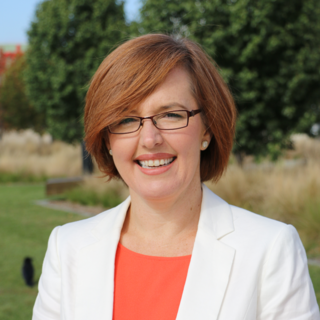
Meegan Fitzharris is a former Australian politician, who was a member of the Australian Capital Territory Legislative Assembly for the Yerrabi electorate from October 2016 to July 2019, and before that, member for the electorate of Molonglo after she won a countback to fill the Legislative Assembly seat vacated by former Chief Minister, Katy Gallagher, in January 2015. She was the Minister for Transport and Municipal Services, Minister for Higher Education, Training and Research and Minister for Health until her resignation from politics in July 2019.

The Murrumbidgee electorate is one of the five electorates for the unicameral 25-member Australian Capital Territory Legislative Assembly. It elected five members at the 2016 ACT election.

Michael Hugh Pettersson is an Australian politician. He has been a Member of the Legislative Assembly of the Australian Capital Territory since 2016 when he was elected as the Labor Party representative for the newly formed electorate of Yerrabi.

Christopher James Steel is an Australian politician. He has been a Labor member of the Australian Capital Territory Legislative Assembly since 2016, representing the electorate of Murrumbidgee and currently serves as a Cabinet Minister in the ACT Government. Before his election, Steel was an education advocate working in the early childhood sector.
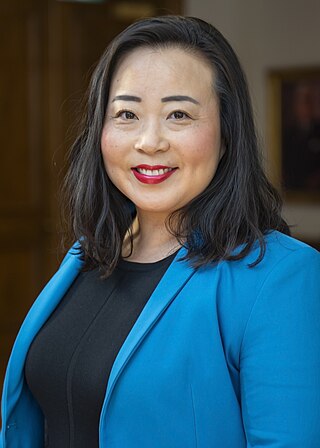
Elizabeth Lee is an Australian politician. She has been a member of the Liberal Party and serves in the Australian Capital Territory Legislative Assembly since 2016, representing the electorate of Kurrajong. Before entering the ACT Legislative Assembly, Lee had a successful career as a lawyer in the private sector. Later, she became a lecturer at the Australian National University and University of Canberra.
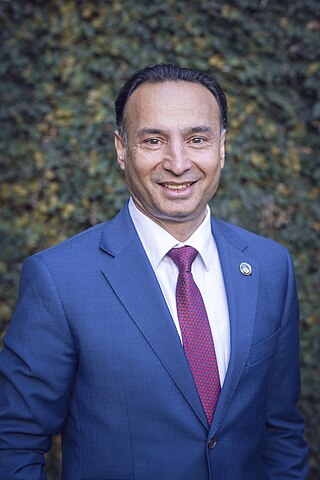
Deepak-Raj Gupta is an Indian born Australian politician and community leader. He was a Labor member for Yerrabi in the Australian Capital Territory Legislative Assembly from July 2019 to October 2020.

Rebecca Vassarotti is an Australian politician who has been deputy leader of the ACT Greens since March 2024, and was a member of the Australian Capital Territory Legislative Assembly for Kurrajong from 2020 to 2024.

This is a list of members of the tenth Australian Capital Territory Legislative Assembly, as elected at and subsequent to the October 2020 election.

The 2024 Australian Capital Territory general election was held on 19 October 2024 to elect all 25 members of the unicameral ACT Legislative Assembly.

Independents for Canberra (IFC) is an Australian political party based in the Australian Capital Territory. The party currently has one seat in the Legislative Assembly, with leader Thomas Emerson serving as a member for the electorate of Kurrajong.






















